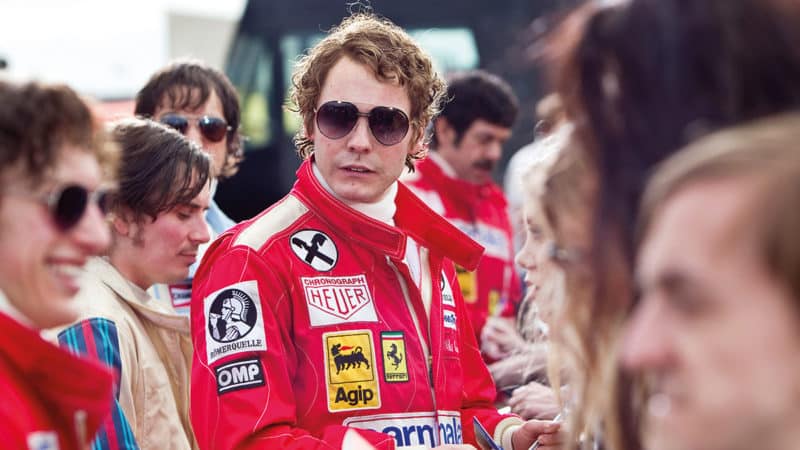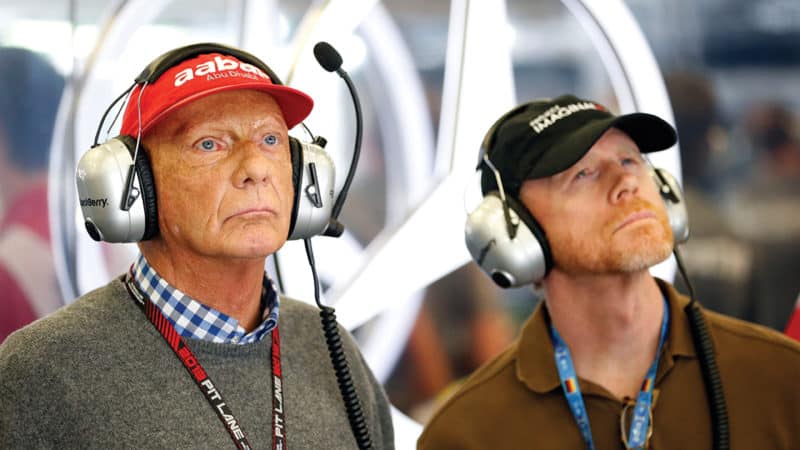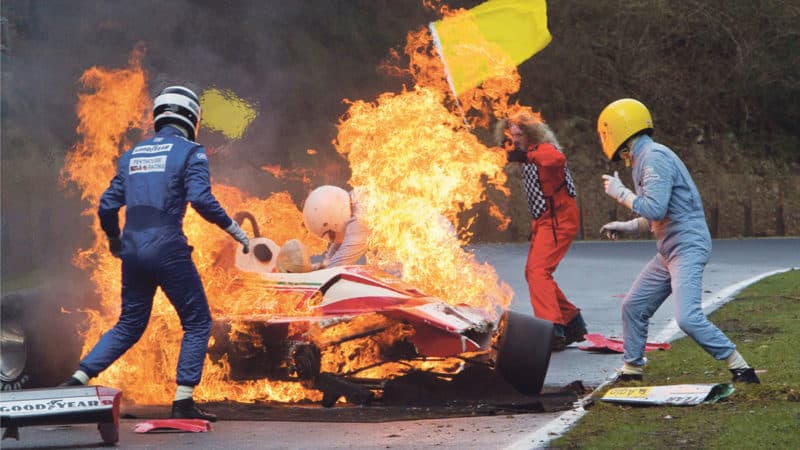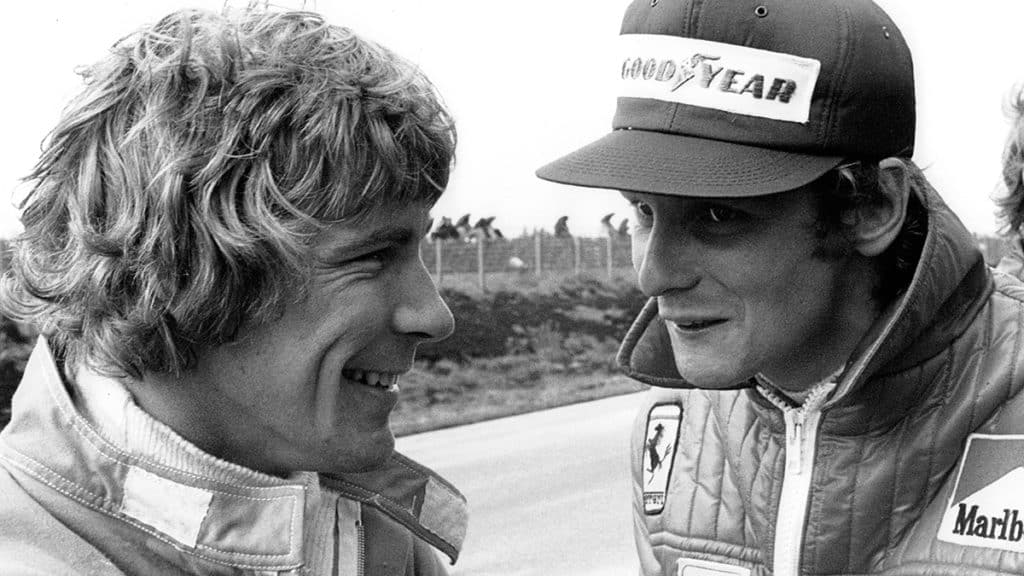“The movie stirred some emotions I didn’t feel at the time…”
The 1976 F1 season remains vivid to all who lived through it, but Niki Lauda believes a Hollywood touch was necessary to make Rush relevant today

PMAA90 DANIEL BRUHL stars as disciplined Austrian perfectionist Niki Lauda in Rush
Almost 30 years after he won the last of his three Formula 1 titles, Niki Lauda remains a popular paddock target. In a world distorted by corporate flannel, his forthright opinions are a prized capture. Even in his latest role as non-executive chairman of the Mercedes team, he has a tendency to say exactly what he thinks.
Easy to imagine, then, that this most forthright of men might be deterred by a little cinematic polish, but that’s not the case at all. “The problem,” he says, “is that you and I remember the old days. Rush is for newer generations and viewers won’t know about 1976, or the two main characters fighting for the world championship.
“The movie’s target was to educate the audience about what happened and it has been done in exactly the right way. Today, almost nobody knows who I was, or who James Hunt was, so they had to make it this way. It’s a movie, rather than a documentary, but I was surprised how well Ron Howard managed to put it all together.”

The man himself, stood next to Ron Howard in the Mercedes-AMG F1 garage
mercedes-benz
Lauda first watched the final edit at a private screening, with about 150 others. “Their reaction was quite interesting,” he says. “They saw everything build up, then the accident happened, the really hard part started and the whole room went quiet. Nobody said a word. There was applause at the end, but beyond that there was silence – in a positive sense. I got up and said, ‘What the hell’s happening here?’ They told me they’d been impressed by the way things came across – the accident, the hospital scenes, so I think Ron did a good job.”
Too good, perhaps.
“I live for today,” Lauda says, “and think for tomorrow, capitalising on the experience I have. That’s how I treat the past. To me, the only difference now is that I’ve watched the movie’s hospital scenes and thought, ‘F***, I really was in bad shape’. When you’re the one lying there, fighting for your life, you don’t think you’re in bad shape, so the movie stirred some emotions I didn’t feel at the time.

The fiery aftermath of Lauda’s horrific 1976 German GP accident was recreated in detail. Even if additional drivers were roped in to help in the dramatised version
“When I first looked in a mirror after my accident, I was shocked – no question – but understood that was the ways things now were. I had no choice. I used to get upset when people talked to me but looked to either side of my head, rather than straight at me. I used to think, ‘Look into my eyes, for f***’s sake’. I didn’t understand why people were so impolite, staring at me in that way just because my features were different. They didn’t cope with it in a proper manner and I never understood this.
“James was one of the few drivers with whom i’d share a beer. we had an understanding” Niki Lauda
“In the movie, however, there’s a scene when the Hunt character walks over to me and turns around. This time I saw myself from the other side and thought, ‘F***! I really look horrible’. There are things in there that make me realise I might have been too aggressive in the past. I wouldn’t have been like that if I’d realised the effect I had on others. From that perspective, watching was quite interesting.”
Lauda is impressed with the way Chris Hemsworth (‘Hunt’) and Daniel Brühl settle into the roles of two men who remained as cordial away from the wheel as they were competitive behind it. “James was one of the few drivers with whom I’d share a beer,” he says, “because we knew each other from earlier in our careers. We were hard competitors, but we also had a good understanding.

“While the film was being made, Daniel told me, ‘The biggest problem I have is that you’re still alive’. I said, ‘Thanks very much. Why’s that a problem?’ He explained that because I was a well-known analyst, people were familiar with how I sounded in both English and Austrian- accented German, so he had to make sure he got those bits right. He came to Vienna to learn. When I saw the movie I thought, ‘He’s done a good job with that’. He explained that it was tough though, because if you’re playing a dead person you can do things differently.”
Talking of which, has the real Lauda ever had a moment’s regret about his early withdrawal from the 1976 Japanese GP? “Not at all,” he says. “I thought it was too dangerous because of the rain. We were delayed for two hours, but when we started there was just as much water. Given that choice again, I’d do the same thing…”
Niki Lauda died on May 20, 2019, age 70
